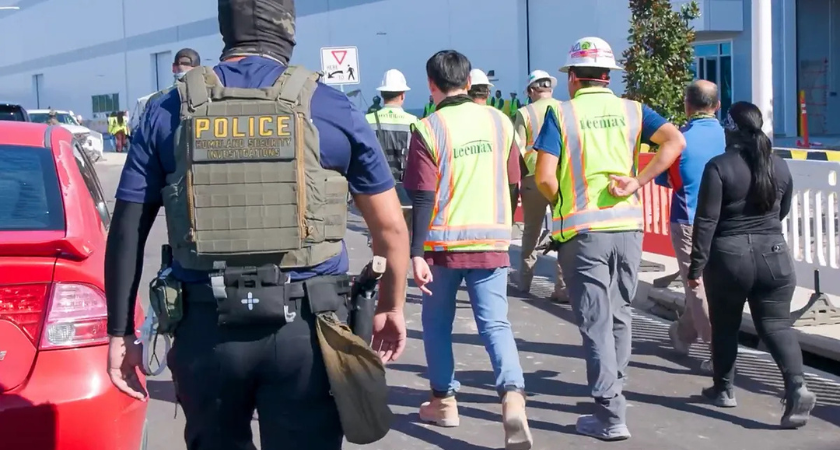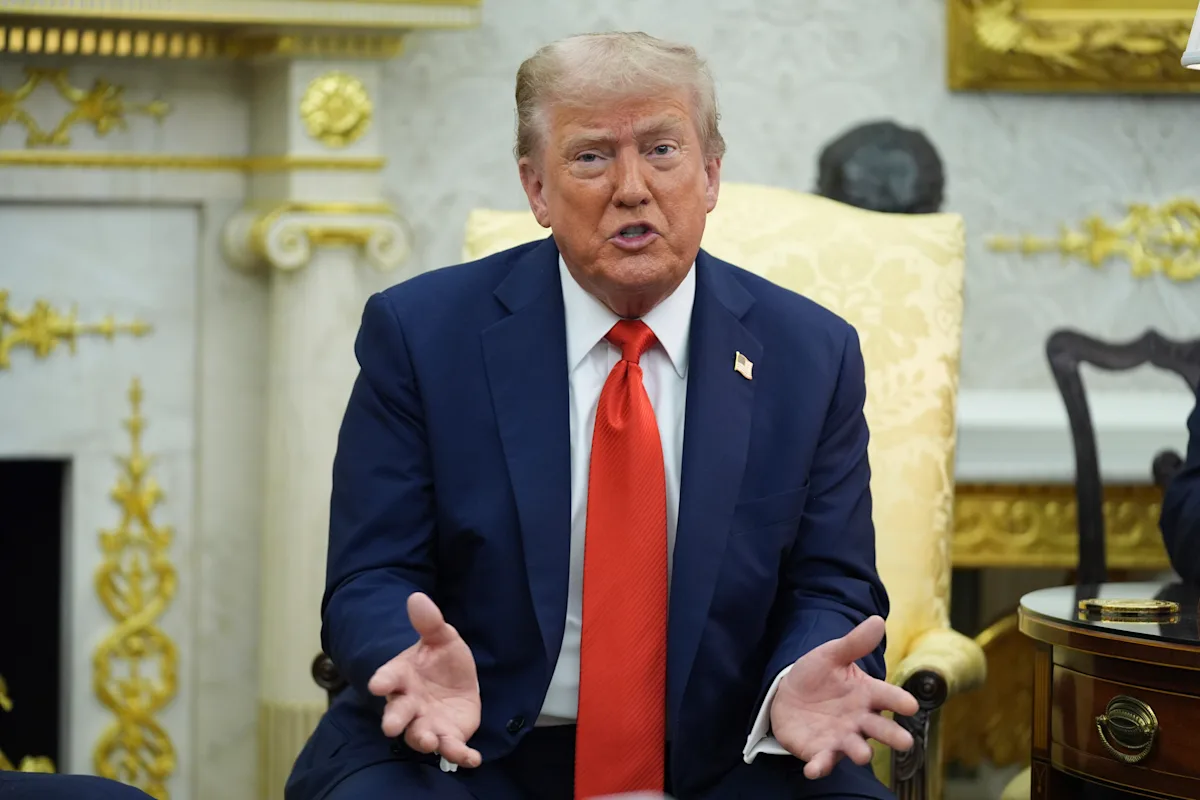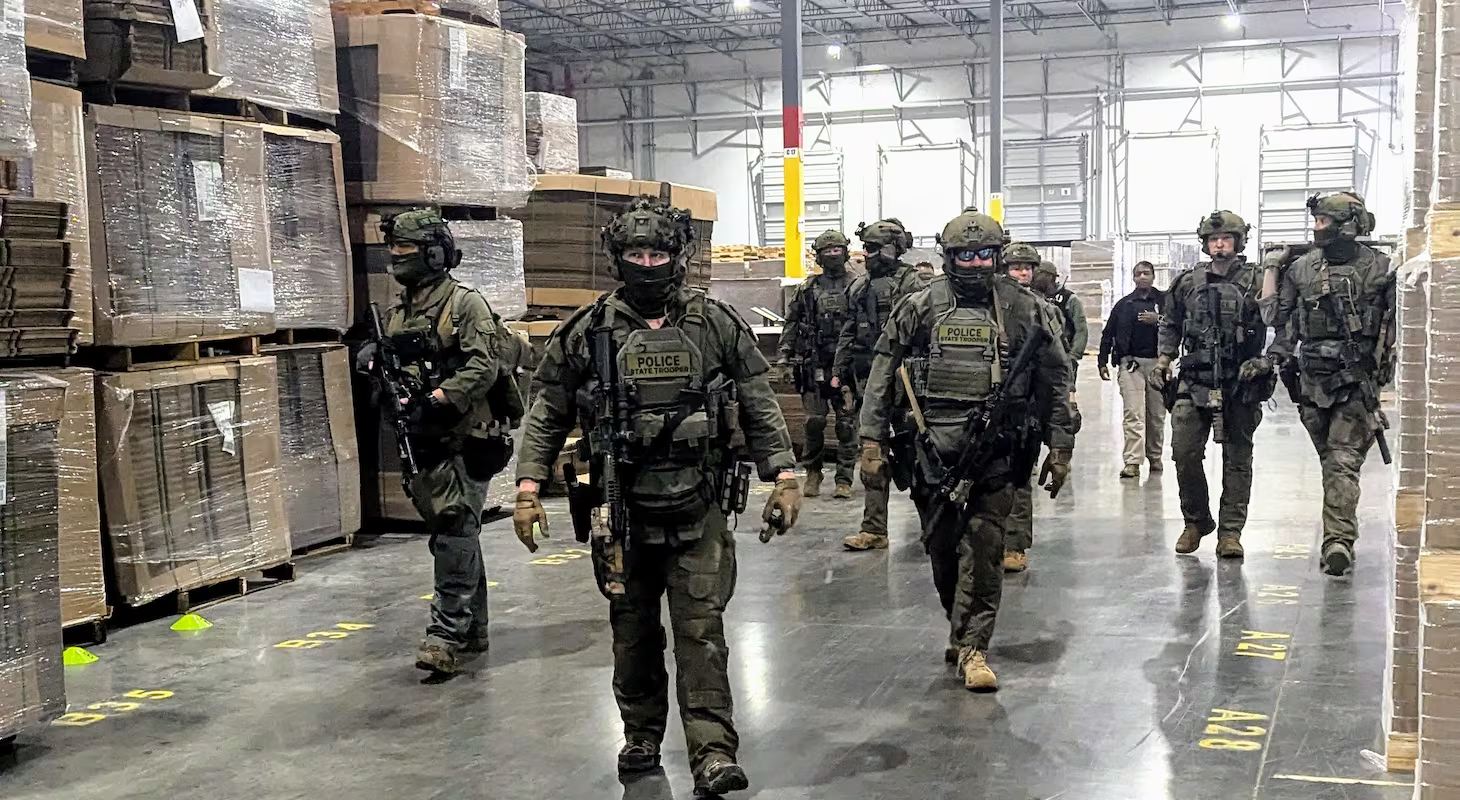
ELLABELL, Ga. — In the largest immigration enforcement action of President Donald Trump’s second term, federal agents detained 475 workers at the site of a $4.3 billion Hyundai-LG electric vehicle battery plant in Georgia. The Department of Justice confirmed the arrests on Sept. 5, marking a turning point in the administration’s workplace immigration strategy.

The raid, carried out Sept. 4, involved hundreds of federal agents and targeted subcontracted workers at the HL-GA Battery Company site in Bryan County, about 30 miles west of Savannah. The majority of those arrested were South Korean nationals, according to The New York Times.
CO Summit Atlanta is filling fast – secure your seat among top construction leaders on Sep 22, 2025 at Kennesaw State. | Learn More
White House border czar Tom Homan said the crackdown was only the beginning. Appearing on CNN’s State of the Union, Homan pledged that enforcement would escalate:
“No one hires an illegal alien out of the goodness of their heart. They hire them because they can work them harder, pay them less, undercut the competition that hires U.S. citizen employees. They drive wages down.”
Construction leaders are now bracing for broader disruption. The industry has long relied on foreign-born labor, both documented and undocumented, to meet demand. A recent survey from the Associated General Contractors of America (AGC) and the National Center for Construction Education and Research (NCCER) found immigration enforcement has already touched about one in three construction firms.
At the same time, nine in ten contractors report openings for craft workers, with labor shortages being the number-one cause of project delays. With major megaprojects like EV battery plants, semiconductor facilities, and data centers underway nationwide, contractors say federal raids could compound the strain.
Hyundai emphasized that none of its direct employees were detained. “Zero tolerance” for unlawful hiring practices would guide its future oversight, the company said in a statement:
“We are reviewing our processes to ensure that all parties working on our projects maintain the same high standards of legal compliance that we demand of ourselves. This includes thorough vetting of employment practices by contractors and subcontractors.”
According to The New York Times, 47 LG employees were among those arrested, while the bulk of detainees worked for subcontractors. LG did not issue a public comment by the time of publication.
South Korea’s presidential office confirmed that arrangements were being made to repatriate 300 of the workers, who will be released and flown home on a chartered flight.

The $4.3 billion EV battery facility is scheduled to begin production in 2026 and represents one of the largest foreign investments in Georgia’s history. It is part of a wider U.S. push to onshore advanced manufacturing, attract foreign capital, and expand domestic clean energy supply chains.
President Trump, while defending the raids, also urged companies to continue investing in America—but within the law. On Truth Social, he wrote:
“Your Investments are welcome, and we encourage you to LEGALLY bring your very smart people, with great technical talent, to build World Class products, and we will make it quickly and legally possible for you to do so. What we ask in return is that you hire and train American Workers.”
The high-profile raid underscores the administration’s twin priorities: tightening immigration enforcement while still courting foreign companies to build in the U.S. For contractors, however, the message is clear—scrutiny of hiring practices will intensify, and reliance on undocumented labor could jeopardize billion-dollar projects.
As Homan reiterated, more raids are expected in the months ahead, raising questions for an industry already grappling with historic labor shortages.
Originally reported by Zachary Phillips in Construction Dive.